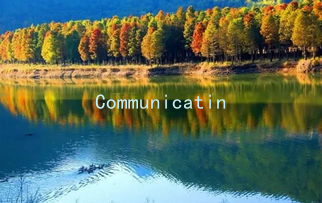The Emotional Functions of Communication in Romance: Unlocking Deeper Connections
The Emotional Functions of Communication in Romance: Unlocking Deeper Connections
In the intricate dance of romance, communication serves as the lifeblood, allowing partners to express themselves, understand one another, and cultivate a deeper emotional bond. While many view communication merely as the exchange of information, it plays broader emotional functions that significantly impact romantic relationships. This article explores the key roles communication plays in fostering intimacy and connection, providing insights into effective romantic dialogue.
One primary emotional function of communication in romance is validation. In a world often filled with criticism and judgment, the ability to affirm each others feelings is paramount. Couples who actively listen and express empathy create a safe space for vulnerability. Phrases such as I understand how you feel or Its okay to be upset can make partners feel seen and valued. This validation fosters a sense of belonging and comfort, essential ingredients for nurturing trust and intimacy.
Moreover, effective communication allows for the negotiation of needs and boundaries. In any relationship, individuals have unique expectations and desires that must be articulated. When partners communicate openly about their needs, they mitigate misunderstandings and prevent conflicts from escalating. For instance, using I statements like I feel overwhelmed when… instead of accusatory you statements can facilitate constructive dialogues, ensuring both partners feel respected and understood. This proactive communication approach helps couples navigate the challenges of daily life together, reinforcing their emotional connection.
Furthermore, sharing personal stories and experiences enhances emotional intimacy. When partners open up about their past, dreams, fears, and aspirations, they invite each other into their inner worlds. This act of sharing can create powerful moments of connection, allowing couples to see each other in new, vulnerable lights. Questions like What was your happiest childhood memory? or What are your biggest fears about the future? can lead to profound conversations that deepen the relationship.

The role of humor should not be underestimated either. Playful exchanges and laughter can alleviate tension and create joyful moments that strengthen bonds. Sharing inside jokes and light-hearted banter can break down barriers, making partners feel more relaxed and connected. However, it’s crucial to balance humor with sensitivity, ensuring that it does not dismiss or minimize serious conversations when they arise.
Conflict is an inevitable part of any relationship, and effective communication is vital in navigating these challenging moments. Rather than avoiding difficult discussions, couples who engage in healthy conflict resolution foster deeper understanding and growth. Active listening, where one partner truly hears and reflects on what the other is saying before responding, is essential in such situations. Acknowledging feelings, agreeing to disagree, and finding compromise can transform disputes into opportunities for connection.
Lastly, the power of non-verbal communication cannot be overlooked. Body language, eye contact, and touch often convey emotions more effectively than words. A reassuring touch, a warm smile, or a sincere gaze can communicate love and support in ways that resonate deeply with partners. Learning to interpret and respond to each others non-verbal cues can enhance mutual understanding and intimacy.
In conclusion, communication in romance serves multifaceted emotional functions that go beyond mere exchanges of words. By validating each others feelings, negotiating needs, sharing personal stories, injecting humor, navigating conflicts, and harnessing non-verbal cues, couples can unlock deeper connections. As partners strive to improve their communication, they nurture their relationship, creating a loving, supportive partnership that thrives on emotional intimacy. Ultimately, the effort invested in developing effective communication skills can lead to a more fulfilling romantic experience, rich with understanding, compassion, and love.





